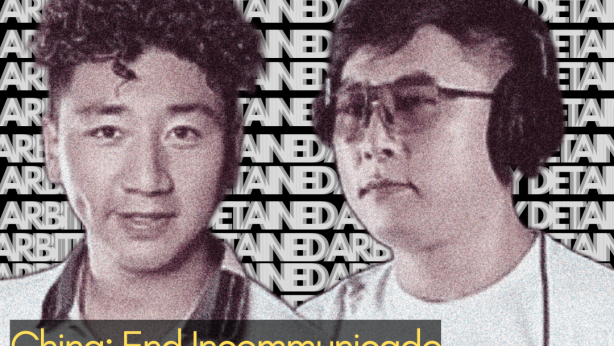Tibetan Librarian at Kirti monastery sentenced to three years in Chinese prison
The Tibetan Centre for Human Rights and Democracy (TCHRD) strongly condemns the recent sentencing of Lobsang Thapkhey, a former librarian at Kirti Monastery in Ngaba (Ch: Aba) Tibetan Autonomous Prefecture, Sichuan Province, in the Tibetan province of Amdo, for merely attempting to import and distribute religious and cultural books from India to Tibet and for engaging in the Tibetan Buddhist practice of making financial offerings to His Holiness the Dalai Lama and Kirti Rinpoche.
Information received by TCHRD confirms that Lobsang Thapkhey, 56, who was arrested in June 2023 and had been missing since has recently been sentenced to three years. He is imprisoned at Deyang(德阳) Prison in Huang Xu Town in Deyang City, Sichuan Province.
Last month, Lobsang Thapkhey’s family received a brief notice informing them that he had been sentenced to three years in prison. However, no details regarding his location and whereabouts were provided, and his family was warned against disclosing the verdict publicly.
Lobsang Thapkhey was accused of collaborating with so-called “separatists,” a label China uses for the exiled Tibetan community, for importing religious and scholarly texts on Buddhist philosophy and science from India. These included books such as “The Necklace of Textbook” by Kirti Rinpoche and works by Geshes from southern India, all of which were kept in the Kirti Monastery Library. Despite having no political content whatsoever in the texts he imported and distributed, the Chinese government imprisoned him.
Before his arrest, he had been summoned to the Ngaba police station and detained for several days on multiple occasions. In between 2017 and 2018, when a lama named Chakdor from Kirti Monastery passed away, Lobsang Thapkhey was detained and interrogated for several days at the Ngaba County police station for sending 2000 Chinese yuan as a prayer offering to the Dalai Lama, Kirti Rinpoche and other lamas in India.
Tibetans make monetary offerings of Kyab-ten and Ngo-ten, according to the age-old practices in Tibetan Buddhism, to establish a karmic connection with a specific lama. Monetary offerings also assist in enabling a lama’s religious and charity work. Kyab-ten offerings are usually made to seek protection from harm or for the removal of obstacles in general. Ngoten involves the relatives, children or friends of a deceased person offering money or possessions of a deceased person that are given to a lama to do prayers for that person.
Son of Khadon (father) and Jhoka (mother), Lobsang Thapkey has significantly enriched the library at the Kirti monastery by importing various book collections.
A source told TCHRD, “His efforts were not only remarkable for their scale but for their bold defiance of intense pressure from the Chinese authorities who regularly sought to limit such activities. As a result, he was arrested and subsequently imprisoned.”
Article 36 of the Constitution of the People’s Republic of China guarantees citizens the right to freedom of religious belief, including the promises such as: “No state organ, social organization, or individual shall coerce citizens to believe in or not believe in any religion, nor shall they discriminate against citizens based on religious belief or non-belief.” The article further states that the “government shall protect normal religious activities…” TCHRD calls on the Chinese authorities to guarantee Lobsang Thapkey’s physical health and mental well-being and urges the international community to pressure China to release him immediately and unconditionally from unjust imprisonment.


